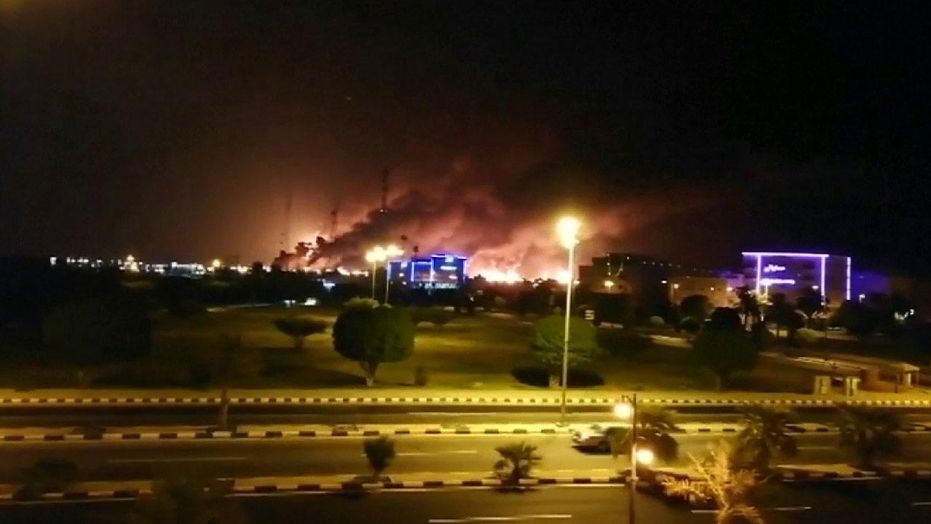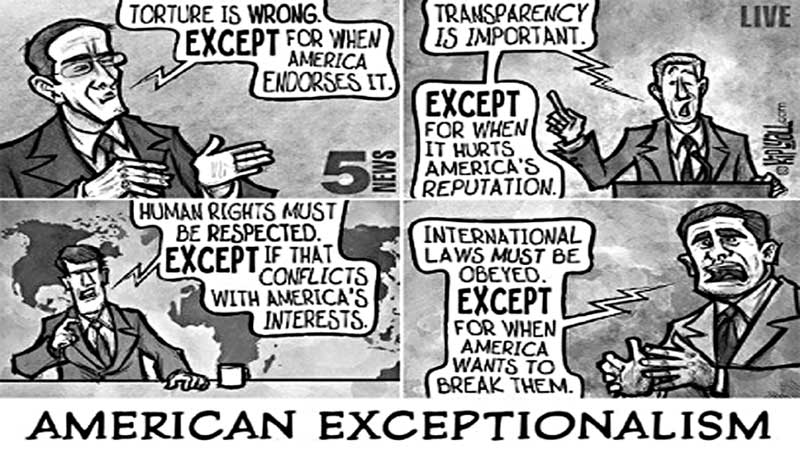
Because when this administration claims it has evidence that Iran was responsible for a devastating attack on a Saudi oil production facility over the weekend, the world, and the American public, is right to be skeptical.
President Trump, enabled by craven and opportunistic aides and advisors, lies the way the rest of us breathe. As my friend and colleague Steve Saideman writes at his blog:
[W]e know that the Trump Administration has no credibility–it has lied about a great many things, so even if they come out with some evidence of either Iranian complicity (and Iran is almost certainly at least complicit) or Iran guilt, it will be easy for folks to dismiss these claims.
Let’s be honest. Can a president who would take a Sharpie to alter a weather forecast map in a childishly obvious attempt to cover for an inconsequential mistake, and then mobilize his Commerce Secretary to threaten to fire some of the nation’s top weather officials unless they also lied to support the president’s lie, be trusted to tell the truth on a matter of real consequence?
Even now, while the Trump administration claims photographic evidence proves the attacks came from Iranian territory, the Saudi government has so far declined to back that conclusion, according to Beirut-based reporter Dion Nissenbaum of the Wall Street Journal:
This all has real consequences, because Trump has again turned to Twitter threatening American military retaliation, raising the specter of triggering what virtually all observers realize would be an absolutely catastrophic war.
Of course this is not the first time that Trump has made a threat like this against Iran, as I’ve commented on here and here. Threats that this president, who seemingly believes tough talk is as good as tough action, has in every case failed to follow through on. I put it this way back in the good old days of “fire and fury”:
The problem is that Trump simply has no credibility. His words are not believable and therefore his threats likely carry no weight with North Korea or anyone else for that matter. Not even the American public believes what they hear coming out of the White House. So why should our adversaries?
Trump routinely lards his rhetoric with threats, violence, and aggression. Such language was part and parcel of his stump speeches as a candidate, reared its head in his inaugural address, and comes out when he talks to or about his political opponents and adversaries.
And he routinely fails to follow through on the threats he makes. He threatens to force Mexico to fund his border wall, but Congress is scrounging for the money. He threatened to withdraw from NAFTA but hasn’t. He threatened a trade war with China but was talked out of it. He threatened Germany over what he believes to be unfair terms of trade. He threatened to lock Hillary Clinton up and sue James Comey. Neither seems to be sweating over it.
Couple all of this with Trump’s penchant for lying and his administrations overall lack of credibility when it comes to the threats it so easily tosses off, and the danger is clear.
The key to successful application of coercive diplomacy – in short using threats of force to either deter an opponent from action, or to compel him to act – relies on more than the capability to inflict an unacceptable level of punishment if your opponent fails to comply. It also requires credibility. The opponent must believe that you will follow through on the threats you’ve made. Without that belief, coercion fails.
And then you’re stuck.
Fail to follow through and you create an impression of weakness, the perception that you are either unable or unwilling to deliver on your threats, a blowhard whose blustering can be safely ignored in the future. Or use the force you’ve threatened and risk dragging yourself into a military conflict no one wanted and which could easily spiral out of control.
The perception of weakness has dire consequences in international politics, which is why most responsible foreign policymakers are very cautious when it comes to the threats they make. Sadly, responsible policymakers are in short supply in this White House.
We’re going to have to wait to find out what the fallout from this particular episode is going to be. I’m not optimistic.



